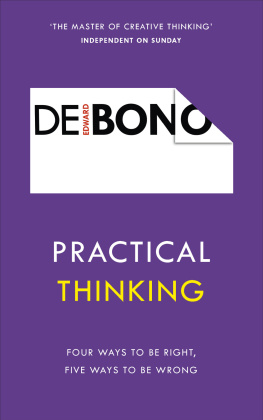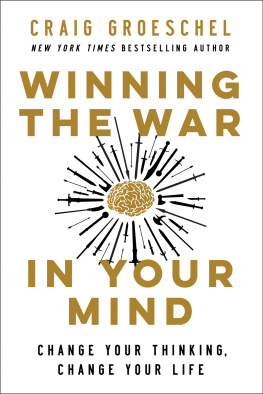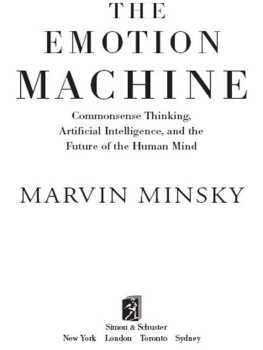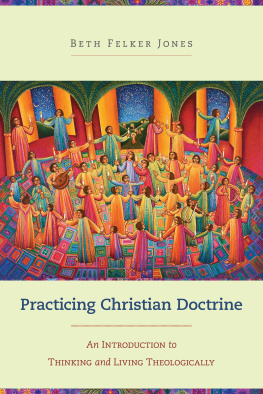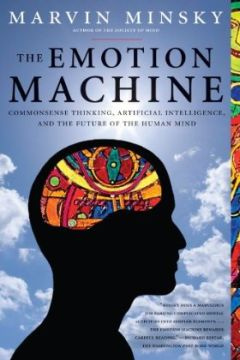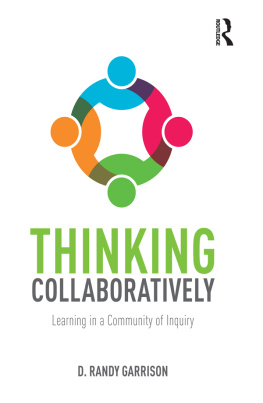Introduction
Eric D. Barreto
My five-year-old daughter helped me think about thinking recently.
I was editing the essays found in this book when she insisted on collaborating on a new book together. How could I say no? So we gathered all the necessary supplies and got to work. She set about designing a cover. She needed a little bit of help writing out the books title: Thinking Book. When the time came to illustrate the cover, she was a bit stumped. I encouraged her to draw a picture of someone thinking. Still flummoxed, she eventually concluded, Were thinking about thinking. Thats hard. She was right. This is hard work.
After all, the odd thing about thinking is that we barely have to think about thinking in order to think.
Let me explain.
Your brain is constantly at work. Whether you are asleep or awake, aware or zoning out, exercising or resting, your brain is a buzz of activity. It is guiding your movements, synthesizing new information, recalling old data.
Think about it this way. You are breathing at this very moment, arent you? If you start thinking intentionally about your breathing, you will find yourself thinking about breathing as you compel your lungs to expand. You may even notice the complex physiological exertions breathing requires. But remember: even as you are reminding your body to breathe at this very moment, in a short while, you will forget to remember to breathe. And yet you will continue to inhale and exhale because your brain will pick up the slack. Imagine the intellectual burden we would carry if we had to think about breathing and digestion, healing and sleeping. Our brains are marvelous creations, never stopping their meticulous work until the day we draw our last breath.
And yet thats not exactly the kind of thinking we want to talk about in this book. The thinking that regulates breathing and practices habits and leans on instinct doesnt actually require much thought or intentionality on our part. That kind of thinking is usually not a powerful source of transformative theological and personal reflection and change. It wont necessarily shape and reshape the work of ministry to which you have been called. It probably wont be tested and honed as you work through seminary.
The kind of thinking we do discuss this in the book is intentional and potentially transformative. It is much more than my brains sometimes feeble, sometimes inspiring machinations. The thinking we discuss in the chapters that follow is thinking about the God of the universe, the world God has created, and Gods many children who populate it. Thinking theologically is hard work, for it seeks to discern the very source and sustenance of life: the God in whose mind we were first an inkling, the God who thought us into existence, the God whose thinking sustains us at every turn. Our thinking poignantly reflects Gods own image. And so our thinking can help us participate in Gods reign.
At the same time, we know that our thinking can be flawed, errant, unduly biased, prejudiced, sinful. Thinking theologically requires training and education certainly. But most of all, we lean on the Spirit when we think theologically. This is the Spirit God has promised will accompany us whenever we call on God. Paul writes in Romans 8:26: Likewise the Spirit helps us in our weakness; for we do not know how to pray as we ought, but that very Spirit intercedes with sighs too deep for words. As Amy Marga explores in her essay Thinking Systematically, thinking theologically is a prayer, a yearning for the Spirit to help us, as much as it is an act of the intellect.
Like Reading Theologically, this volume draws together the reflections of nine writers. They all share a common vocation: teaching people like you to think and grow and be in a rapidly changing world for the sake of the good news of Jesus Christ. Moreover, they are all excellent scholars who are seeking to hone our knowledge and understanding of a God whose grace and magnitude we cannot exhaust. In their diverse approaches, however, they share some important ideas, ideas we hope will dwell in your hearts as you study, and as you struggle and rejoice in your learning.


